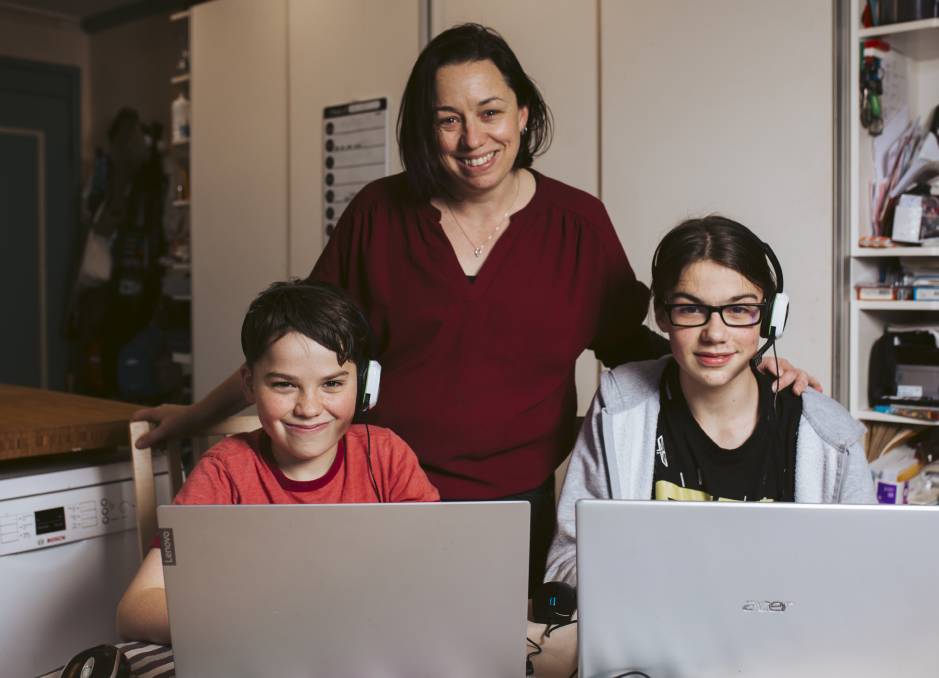After schools were forced to rapidly adapt to online learning when coronavirus hit earlier this year, parents and students also went online for extra help.
Online tutoring services have received strong increases in enrollments since March, with parents concerned their children would fall behind while doing school work at home.
Elizabeth Hickey said she had sought out online tutoring for her sons, Anthony, who is in year 6, and Freddie, in year 8, at the beginning of the year.
“It wasn’t necessarily because of COVID[-19], but it has been a benefit because they’ve been able to get that extra one-to-one tuition without any face-to-face, and get supported to do their maths. And we’re actually just about to take up English,” Mrs Hickey said.
Mrs Hickey said Freddie and Anthony had both seen improvements in their maths work following online tutoring sessions through Cluey Learning.
“Working from home actually gave me a lot of benefits because I didn’t have to deal with unreasonable sounds around me, people talking. The tutoring helped me get on with my maths, so it was really helpful,” Anthony Hickey said.
Mrs Hickey, who lives in Charnwood, said online sessions fit around other family commitments.
Cluey Learning chief education officer Dr Selina Samuels said the company had seen a 30 per cent spike in enrollments in March and April, when schools first switched to remote learning. A lot of interest had come from senior students.
“Over 50 per cent of the senior students [we surveyed] were looking for or already using additional support, like online tutoring, particularly because they feel that, in learning from home, they’ve really missed the one-to-one connection with their teachers,” Dr Samuels said.
Dr Samuels said the shift to online school learning earlier this year had flowed through to tutoring.
“There has been a consistent recognition of the benefits of online tutoring as opposed to in-person tutoring,” she said.
Professor Karen Dooley, a researcher at the Queensland University of Technology’s education faculty, said families sought out tutoring support for their children for a variety of reasons, from providing extra help to extending academic performance.
She said while there was limited research available on tutoring’s impact, education experts agreed there had been an increase in home tutoring services in the past 20 years.
“One of the interpretations that is quite widely accepted is that the relationship between the family, the school and the nation has changed within the last couple of decades,” Professor Dooley said.
“And there’s a stronger shifting of responsibility to families for the outcomes of their children, and expectations of more intensive parental involvement in a child’s education. That’s quite different from, say, the middle of last century.”
Professor Dooley, who was running a research project on tutoring before coronavirus disrupted the school year, said the forced introduction of digital education services during the pandemic could see long-lasting changes to tutoring.
“And I think that is talking to a big issue for the entire education system, from the early years to university and from the formal institutions as well as the providers of tutoring, that this is perhaps one of those moments where understanding of possibilities change because we were thrown into a situation where we had to do certain things,” she said.
In June, the Grattan Institute called on the federal government to launch a $1 billion six-month tutoring program, saying it could help close the existing gap between advantaged and disadvantaged students.
